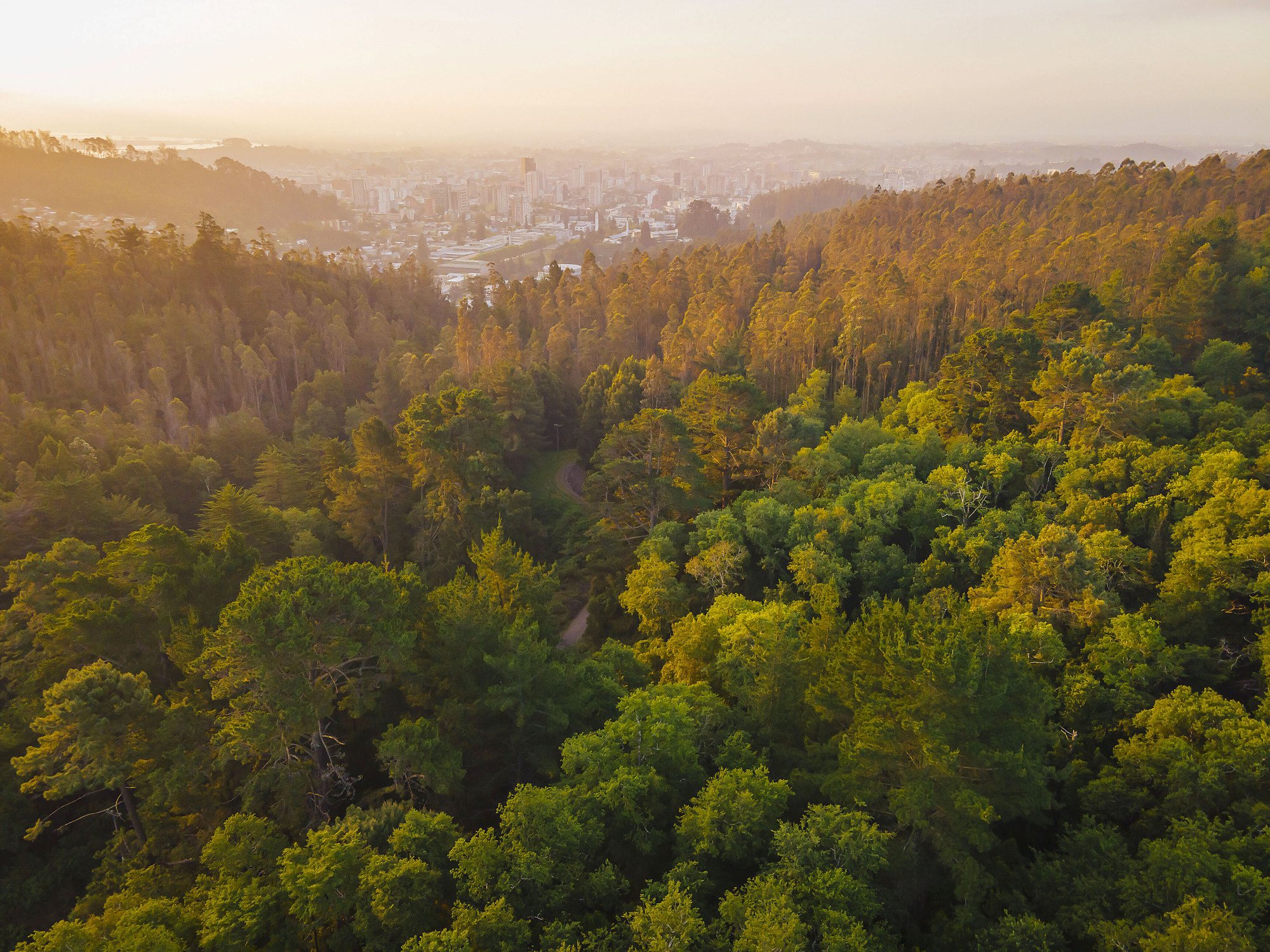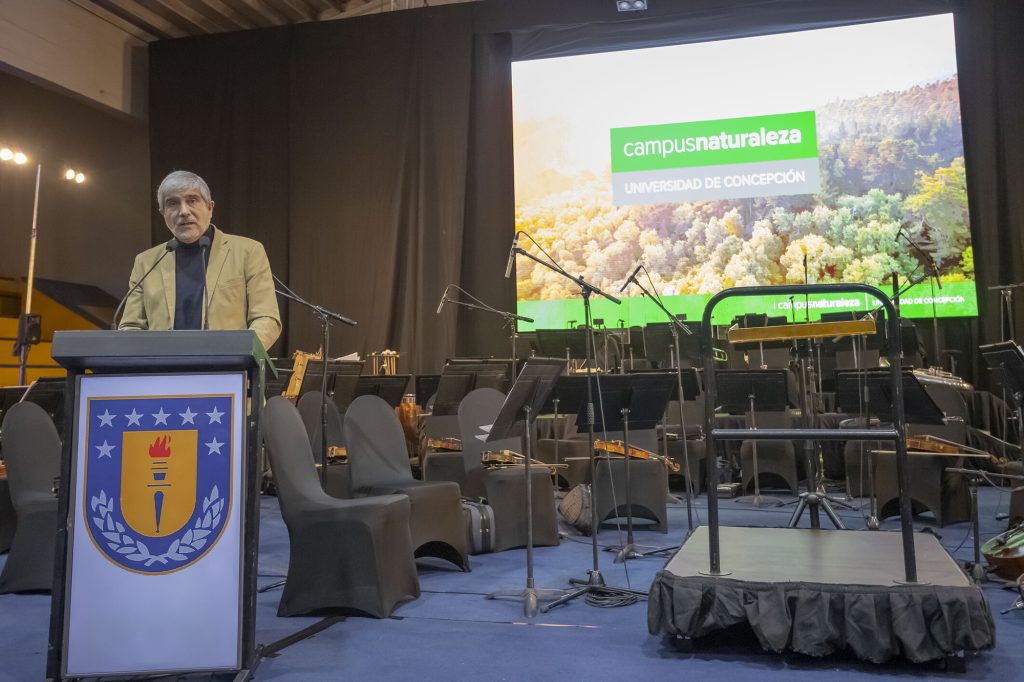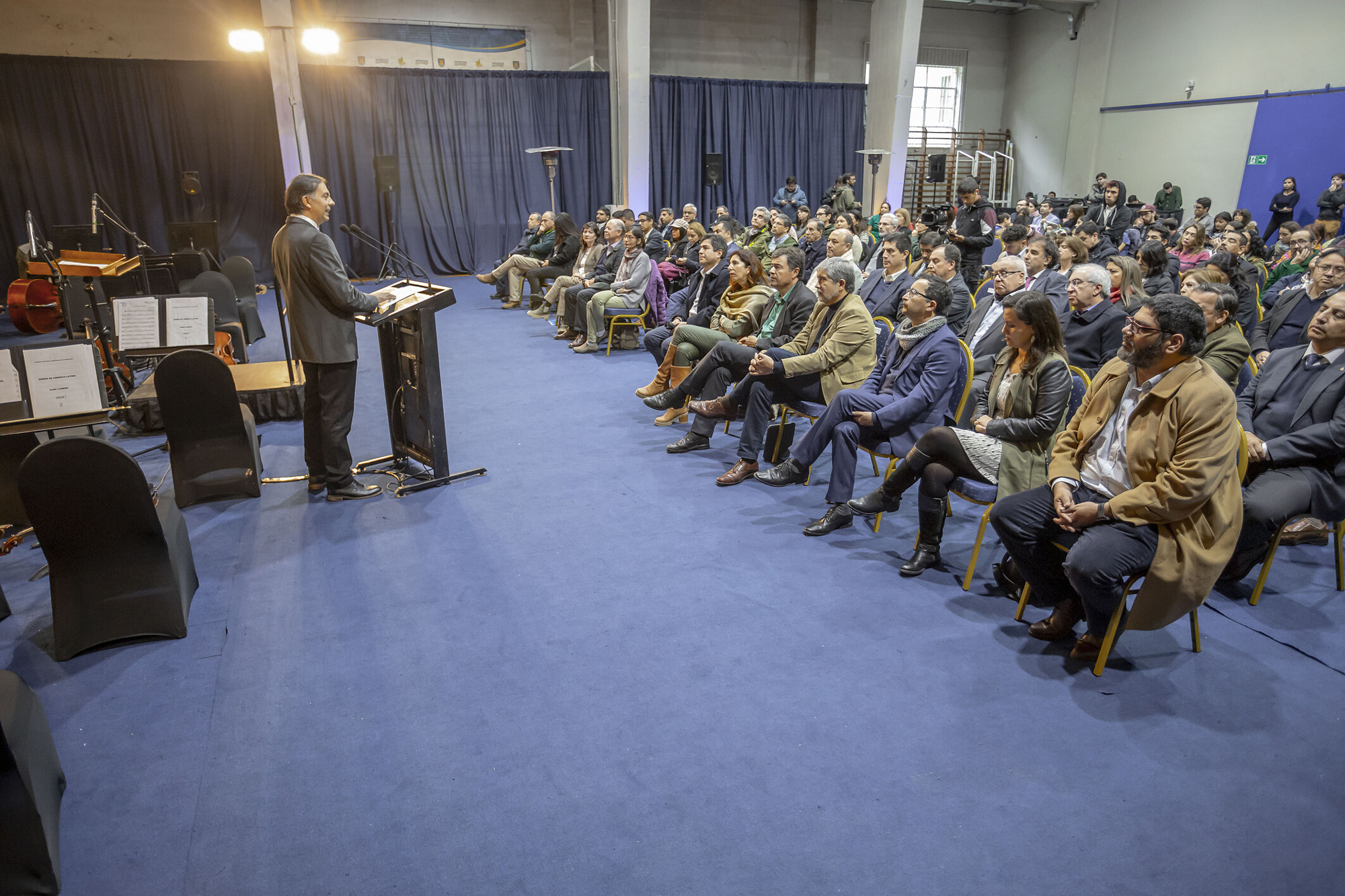An unprecedented nature conservation project begins in Chile.

The university, within the framework of its 104th anniversary, undertakes an initiative of unique characteristics in the country, based on science and on the benefits that constant contact with nature provides to humans. This is the Campus Naturaleza Universidad de Concepción project.
"Olivillos, peumos, robles, and canelos, among others; foxes, monito del monte, guiña cat, and pudú, as representatives of animal species. What we are describing is not an ecosystem from Patagonia or the Valdivian rainforest. This is an environment that exists just a few kilometers from the city center and now takes center stage as Campus Naturaleza Universidad de Concepción.
You cannot inaugurate something that was already there: the last vestiges of what were once the great coastal native forests. However, you can elevate its status as an essential piece of a pioneering initiative in Chile, based on science and the benefits that continuous contact with nature provides to human beings.
The spirit of the project calls for it to become the new biocultural legacy for the community, the country, and the planet. The university, in the context of its 104th anniversary, begins a phased approach that will not only preserve this important natural heritage but also make it available to the community in various forms.
Under the imprint of scientific knowledge, areas of high biodiversity value currently existing will be preserved. Additionally, ecological restoration actions with native forests and scientific research will be carried out to help nature regain its functionality as an ecosystem.
Simultaneously, the project will engage with the community through various avenues; implementation, design, and other processes will begin to illuminate a space available for the community, serving environmental education, culture, and various forms of knowledge present in university activities.

Meanwhile, Minister of Agriculture Esteban Valenzuela Van Treek highlighted the contribution of this unique and differentiating project in the country, where both nature preservation and city engagement coexist. 'President Boric sends all his greetings to the Universidad de Concepción and gratitude for this tremendous progress. Without exaggeration, it is like a new university reform, an eco-reform, incorporating nature as a fundamental part of conservation, knowledge, and spirit, a place for healing. Chile requires much inspiration, balance, and harmony, which are crucial in higher education,' noted the minister.
During the same event, held at the UdeC Sports House, Dr. Ximena Gauché Marchetti, Vice-Rector for Institutional Relations and Community Engagement, commented that the functioning of Campus Naturaleza was articulated through the UdeC Community Engagement Policy, involving faculty members, undergraduate and postgraduate students from different faculties, 'as well as a committee and involvement of external organizations to the university - whether environmental, educational, or health-related - which will allow us to gradually implement a governance model unprecedented in a project like this, enabling citizens to embrace it and feel it as a gift from the Universidad de Concepción, not only to the city, the country, and the region, but to the world.'
Initiative in the Context of an Environmental Crisis

At the same event, Dr. Cristian Echeverría Leal, Project Director of Campus Naturaleza Universidad de Concepción, explains that the stability of many of our socio-ecological systems is at stake. Our landscapes are far from being resilient and meeting human needs, both current and future. He emphasizes that we are heirs to unique ecosystems and species from our country and the planet, and in that sense, 'Campus Naturaleza will be a window to contemplate our unique and invaluable biodiversity. With an equitable and long-term perspective, the project not only aims to create a space for the conservation and restoration of local biodiversity but also to raise awareness among people about how much we depend on a healthy and restored nature.'
'There has never been another time in history when biodiversity and human well-being have been so relevant to public policy and decision-makers. For a long time, nature determined our survival, but now we determine its survival,' he emphasizes.
Furthermore, Dr. Cristóbal Pizarro Pinochet, Deputy Director of the Project, highlights that 'as a university, we are delighted to see Campus Naturaleza as an initiative that connects people around the conservation of nature. As an academic, I am proud and celebrate that our university makes available all areas of university work to restore the biodiversity of forests and wetlands, right from our own place of work and territorial engagement in Greater Concepción. I feel it is a firm signal of what the environment means to our institution. I am also deeply moved by having clear and transparent participation mechanisms, thereby integrating the knowledge of members of the Penquista community who value this space and nature.'
He adds that after an initial phase of engagement with the community, 'it is encouraging to see the support and synergy from educational centers, neighbors, and social and environmental organizations in our region,' he comments.
Being a peri-urban area, i.e., an environment adjacent to the city, special emphasis will be placed on aspects that may be common in streets but are sensitive in fragile, biodiverse ecosystems. Silvana Campos Villavicencio, Conservation Manager of Campus Naturaleza, says, 'There are activities that are incompatible with the conservation of these places, for example, the transit of people with pets, as this directly and indirectly affects local biodiversity, even if they are vaccinated, leashed, or well-behaved.'
The specialist explains that these domestic animals can transmit diseases or their mere presence and scent alters the behavior of native wildlife; added to this is the risk of direct attacks on various species. 'In this regard, we have seen many cases in the region of pudús being attacked by dogs, or foxes with distemper or fleas, to mention some cases that we want to prevent from happening in these ecosystems. Additionally, thanks to camera traps, we have been able to identify the presence of packs in the same sites used by wild fauna, and in some cases, these are the same dogs accompanying people who enter and then roam the forest,' she comments.
Campus Naturaleza Universidad de Concepción will implement an in-situ conservation area for fragile native ecosystems of high biodiversity value over an area of 180 hectares. It will also include areas for ecological restoration and ex-situ conservation through the establishment of living collections of Chilean flora species.
The hills surrounding the central campus of the Universidad de Concepción contain ravines, slopes, and territories with high biodiversity, yet equally susceptible to human intervention. Because of this, and because the university needs everyone to maintain a natural heritage that will be a source of pride for future generations, access to these spaces will remain restricted during the project's implementation.

